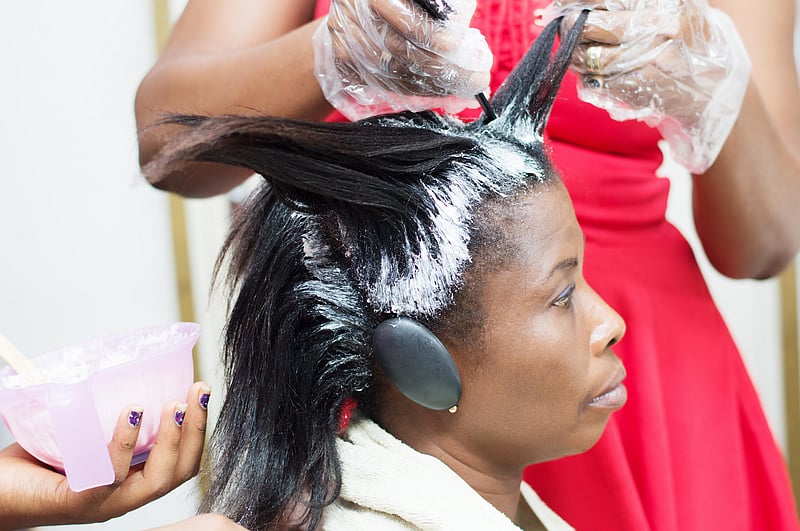Manténgase sano!

- Cara Murez
- Posted April 28, 2023
Could Hair Relaxers Affect a Woman's Fertility?
Hair relaxers may slightly affect fertility, a factor most likely to impact women who are Black or Hispanic, according to a new study.
Research led by Boston University School of Public Health found that these chemical hair straighteners may affect a person's ability to become pregnant. This builds on growing evidence about the effects on reproductive health of chemicals found in beauty products.
"Our work underscores the importance of expanding research on the reproductive health effects of beauty product use to promote environmental justice and increase health equity,"said lead author Lauren Wise, a professor of epidemiology. She spoke in a university news release.
Black and Hispanic individuals are more likely than people from other racial and ethnic groups to use these products early in life, more frequently and for longer periods, according to the research. It noted racial disparities in exposure to toxic chemicals.
The authors pointed to societal pressure to conform to Eurocentric beauty norms as well as restrictions or bans on Afrocentric hairstyles in the workplace and schools.
Researchers analyzed survey data on hair relaxer use among people planning pregnancy in the Pregnancy Study Online (PRESTO).
Since 2013, that study has enrolled people across North America, following them from before conception through six months after delivery.
The current look at hair relaxers included more than 11,000 participants with information about using these products from 2014 to 2022.
Participants who reported having used relaxers were more likely to be older, have less education and annual income, a higher body mass index (a measure of body fat based on height and weight), to smoke, be unmarried and be residents of the Southern United States compared to those who never used hair relaxer. They were also more likely to take longer to conceive.
Hair relaxer use, both current and former, was highest among Black participants, followed by Hispanic participants.
More than half of Black participants said they used their first relaxer before age 10. That compared to between 1% and 17% among other racial and ethnic groups.
Participants who used relaxers for at least 10 years or at least five times per year had the lowest fertility rates. Study results did not show clear dose-response patterns.
Researchers also found that current and former use of hair relaxers, greater frequency and duration of use and getting scalp burns from the products were associated with lower chances of becoming pregnant.
Phthalates, phenols and parabens are a few of the chemicals in relaxers that may contribute to these fertility issues, according to the study. The products likely don't contain their full set of ingredients, researchers said.
They called for more data to better understand how these chemicals affect fertility.
Study results were recently published online ahead of print in the American Journal of Epidemiology. Funding was provided by the U.S. National Institutes of Health.
More information
The U.S. National Institute of Environmental Health Sciences has more on cosmetics and health.
SOURCE: Boston University School of Public Health, news release, April 26, 2023







